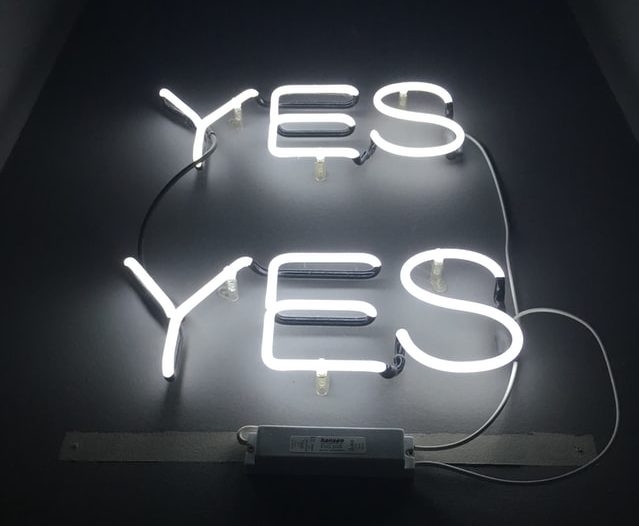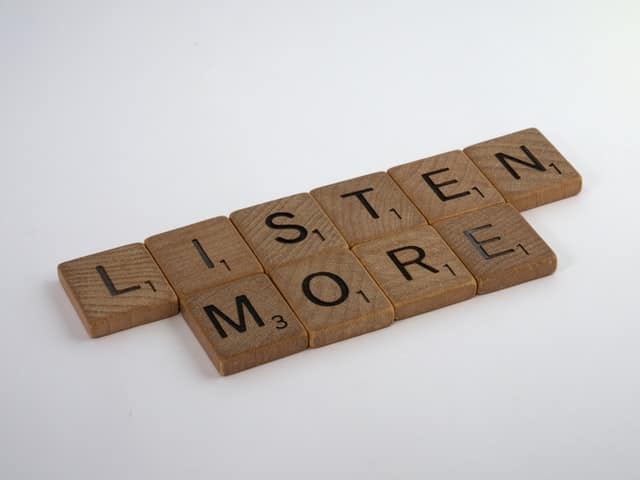Find out How Theatre Improv Techniques and Strategies Can Improve Your Ability to Build Rapport with Customers.
Did you know that theatre improvisers make the best salespeople? In fact, you can utilize some basic theatre improv skills to build rapport with customers and earn more sales. If you’re not a trained actor, improv comedy may be something you’ve encountered as an audience member. Some people love watching two or more actors get on stage and create a scene out of nothing more than an audience-suggested word or object. Improvisational theatre means there’s no script to follow, but that doesn’t mean there aren’t techniques that help actors build a scene together. Some of those same techniques are useful when it’s time to build rapport with customers. Here are seven improv techniques that transfer seamlessly over to the sales industry.
The Rule of “Yes, And”
One of the first things a theatre student learns when studying improv is the basic tenet of “yes, and.” It’s a two-part guideline that helps actors build scenes with each other. The concept is simple: whatever your scene partner says, you agree with it and build onto it with more information or details.
In the sales world, your scene partner is your prospect or customer. Whatever they say to you, try to initially respond with some sort of “yes.” This can literally be “yes,” but it’s more oftentimes something like “I hear you,” or “yes that makes sense,” or “I agree.” But just like in improvisational theatre, you don’t want to stop at the “yes,” you want to build onto it. That’s where the “and” comes in. After you agree with your customer, find a way to add more to the conversation.
Using “yes, and” is a great technique to talk your way out of an objection. For instance, if your customer says “Thanks but I’m happy with my current provider,” you can respond with “I hear you, and I’m not looking to get in the way of a good partnership. I’m just wondering if you’ve reviewed your policy in the last year to find ways of reducing your premium.” By agreeing with your customer and sharing your intentions, you build rapport with customers and disarm them from putting up additional barriers (or worse, hanging up the phone). By adding the bit about reducing your customer’s premium, you’ve built onto the conversation by dangling a carrot of potential savings and the conversation will likely continue.
Active Listening and the Callback
In improv theatre, the success of a scene depends on how well each scene partner is listening to the other. This couldn’t be more true when you want to build rapport with customers in the sales industry. A distracted salesperson doesn’t close the deal. You need to listen to every clue your prospect or customer shares with you and be able to call back to those details later in the conversation or in future conversations. Did your customer mention he has teenagers at home? This can be useful information if two conversations from now you find yourself putting together an auto insurance quote and want to share an example of how insurance protects teen drivers. Jot down notes during each call or email and save them for use in follow-up communication.
Leverage the Art of Storytelling
A theatre artist uses spoken word, dialogue, and movement to tell a story. Storytelling has the ability to take a specific set of concepts and examples and turn them into universal truths. As a salesperson, you can use storytelling as a technique to build rapport with customers, by showing them through examples, how your products and offerings can make their lives better. Are you in the home insurance industry? Then tell your customer about another client of yours whose house was damaged due to a storm. Tell your customer how that client was able to repair and replace all of the damage at no cost thanks to the insurance you sold them just months earlier. In that example, storytelling can build rapport with customers and create a sense of urgency to buy an insurance policy now.
Build Confidence with Going Off Script (sometimes!)
A major difference between improv actors and salespeople is that many times salespeople will utilize scripts and talk tracks. But sometimes, being able to go off-script will help build rapport with customers, especially if there’s an opportunity to build a personal connection. The key is being able to find your way back to your talk track after you’ve gone off script and to seamlessly transition back to the purpose of your call or meeting.
Rehearse and Roleplay
There’s a big misconception that improv theatre artists don’t have to rehearse because there are no lines to learn. This couldn’t be farther from the truth since improvisers need to continually practice their techniques to be ready for the next performance. Just like an actor’s rehearsal, using roleplay exercises will help salespeople be ready, in this case, to build rapport with customers. Work with a partner or a team and take turns being the customer. It’s helpful if there’s a third or fourth person serving as an audience who can take notes and offer feedback. If you don’t have an extra person, record yourself on your phone and playback to see what techniques worked and which ones you need to practice more.
Wish you had more time in your schedule to build rapport with customers? HBW Leads can help! Let HBW Leads take care of your lead generation by providing you with double-verified leads specifically for you and your agency.






